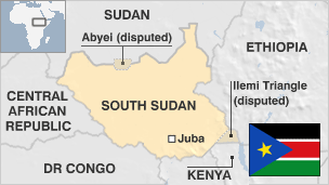
Facts and stats about South Sudan
Sudan or the Republic of South Sudan is the youngest nation in the whole world. It is number 193 in the United Nation’s membership roster and 54 in the African Union. The country obtained its independence in 2011 after a self-determination referendum where the citizens voted overwhelmingly for complete sovereignty from the former Sudan. The voting was one of the Comprehensive Peace Agreement’s stipulations signed in 2005. This pact terminated one of longest civil wars in the African Continent. After coming out from decades of abandonment and unfairness, the Republic of South Sudan is now striving and committing resources to national development. Sudan used to be the biggest nation in the African continent and the Arab world until 2011. This was the year when South Sudan seceded after this historic referendum. Today, Sudan is the third biggest country in Africa and the Arab nation. Sudan has become notorious after it was named as among the most corrupt countries globally. The youngest nation is still under construction and trying to maintain a delicate peace. This is important to restore confidence among investors and get the economy back on track. These are some essential economic concerns which will possibly affect South Sudan's commerce and investments in the years to come. The World Bank states that South Sudan is the most oil-dependent nation worldwide because it accounts for nearly all of the nation's exports and 80 percent of Gross Domestic Product. China has invested mainly on South Sudan’s oil industry. In 2012, China pledged $8 billion in development loans for hydroelectricity and infrastructure projects. According to the International Monetary Fund, the country of 10.3 million citizens achieved a growth rate of 24.7 percent last year. It is expected to grow by 43% in 2014. Despite this development, this wealth still has to reach the people following two decades and a half of civil war. More than half of the populace live beneath the poverty level. The country has four primary trading partners in the EAC which are Uganda, Kenya, Ethiopia and Sudan. At present, South Sudan is Uganda's biggest export market for cement, vehicles, iron and steel comprising the bulk of merchandise. The country is waiting for its membership with the East African Community to be approved.
- Agriculture 4
- Background 7
- Crime 1
- Culture 3
- Economy 190
- Education 26
- Energy 29
- Environment 12
- Geography 23
- Government 76
- Health 44
11.09 million
Population. Ranked 76th in 2013.
$861.57
GDP per capita. Ranked 151st in 2012.
